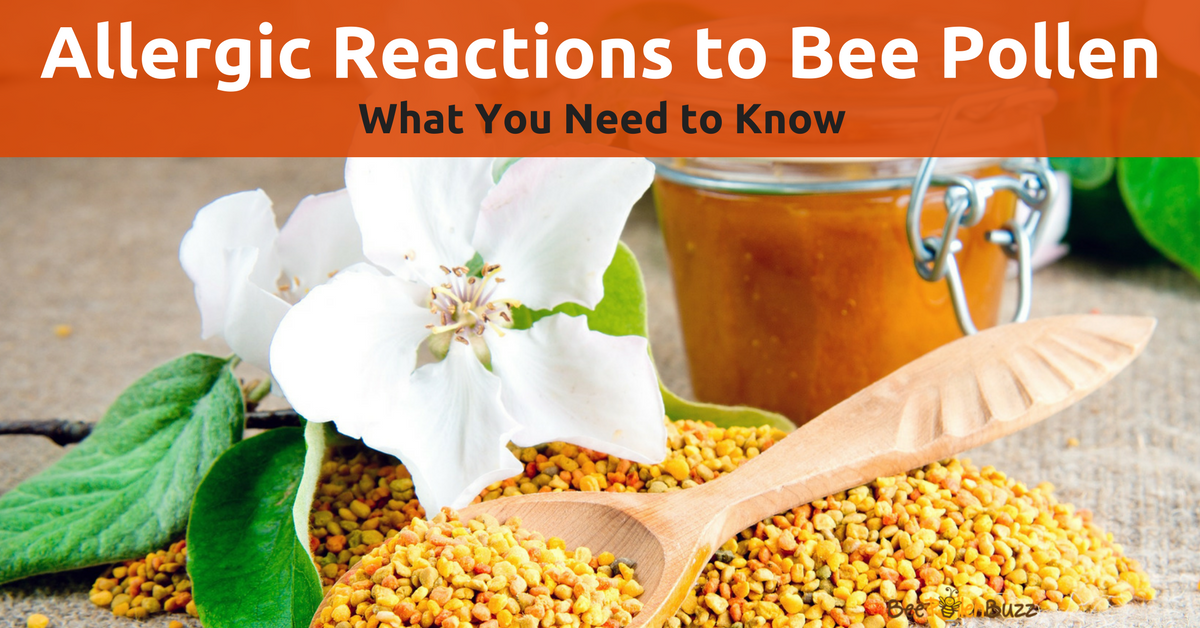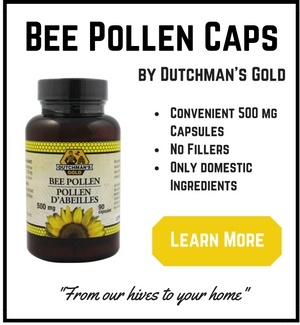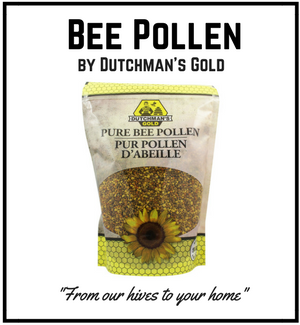Allergic Reactions to Bee Pollen
How to safely take bee pollen, prevent allergic reactions and how to know if you've had one

by Angela Van Alten, Nutritionist and Beekeeper's Daughter
Just yesterday I received the following email about having an allergic reaction to bee pollen. Here is the main part of the email:
"I bought some pollen here in the mountains of central Arizona. After arriving home I tried the pollen (under a teaspoon) and soon there after my breathing felt somewhat compressed. I was not able to accomplish what felt like a full lung of air. This only lasted a few minutes. I am aware of some of the reactions from bee stings but have never had any issues throughout my life with bee, wasp or any insect stings like the aforementioned.
Do you think this is an allergic reaction to bee pollen I had and my body was reacting to the pollens?"
Without question, yes. You had a mild allergic reaction to bee pollen.
For someone who had not taken bee pollen before, taking even a teaspoon of bee pollen can cause problems for someone who is sensitive to pollens.
In my experience, you likely have an allergy to pollens and by exposing yourself to a large quantity of pollens all at once like you did without desensitizing yourself first caused your body to have a mild allergic reaction.
So what are you to do if and when you have a mild reaction to bee pollen? Don't worry - you'll likely be able to consume this amazing superfood and experience all of the wonderful benefits it has to offer in time.
What you need to do first is take my tolerance test.
Tolerance Test
Follow these guidelines to determine your sensitivity to the pollens. Although bee pollen is not a drug, it is possible you could be sensitive to it so it's best that you're cautious the first time you take it.
1) Place one raw bee pollen kernel under your tongue.
2) Let it dissolve completely. It is absorbing rapidly through what is called your mucous membrane directly into your blood stream.
3) If you experience no reaction, place two granules under your tongue.
4) Continue increasing the number of granules under your tongue until you feel confident that you will not experience an allergic reaction.
What to do if You Are Sensitive to Bee Pollen
Signs and symptoms that you may be sensitive to pollen include:
- An itchy throat
- Runny nose
- Headache
- Sweating
- Tearing eyes
- Respiratory issues
- Stomach/bowel distress
If you experience one or all of these symptoms, the most important thing to do is to stop taking the bee pollen for the time being. If you have had a severe reaction you should see your doctor.
But consider this if your reaction is more mild. There are some experts out there who feel that with continued exposure, you'll develop a tolerance or re-balancing of your immune system and over time will be able to tolerate pollen very well. As always, if you feel weird or unsure, check with your doctor first.
Simply cut back your dose (error on the side of caution) and slowly up it until you experience no symptoms at all. When you reach this point, you'll know that your immune system has adapted to the pollens. This is the first step in treating your allergies.
Recommended Bee Pollen Products
There are many bee pollen products on the market, many of which are very poor quality with very suspect ingredients from suspect countries. I regularly get solicited by companies from all over the world selling cheap, low grade bee pollen that is not fit for human consumption. I use and recommend Dutchman's Gold Bee Pollen. You can find Dutchman's Gold bee pollen products here.
Explore the Many Health Benefits of Bee Pollen
|
|
|












New! Comments
Do you have something to say about what you just read! Leave me a comment in the box below. I'd love to hear from you!